10 Effective Home Remedies To Get Rid Of Blood Blisters
Everything you need to know about these stubborn blisters and how to treat them
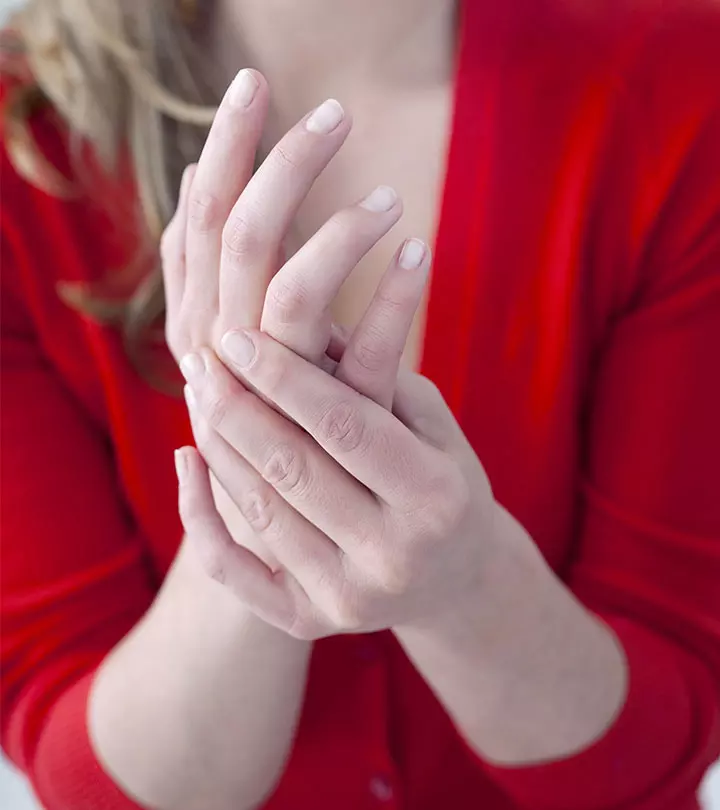
Image: Shutterstock
A swollen, blood-filled lump on the skin is commonly known as a blood blister. Blood blisters can form when the skin is rubbed, damaged, or pinched. i.e., when it experiences friction against a hard surface. While they are generally harmless and disappear on their own, you may want to know how to get rid of blood blisters as these can be unsightly and quite stubborn. Blood blisters resemble a skin-covered blood-filled bubble. Yes, it is not a pretty picture, yet the blister’s unbroken skin acts as a natural barrier against microorganisms, and helps lessen the chance of infection. This article discusses some home remedies to speed up the healing or make these blisters disappear. Keep reading.
In This Article
What Is A Blood Blister?
Blood blisters are red, fleshy bumps that are caused due to damage that affects the lowest derma layer of the skin.
A pocket is formed in the skin, and it contains clear fluid along with blood. In the case of friction blisters, this pocket is filled with clear fluid only.
At first, a blood blister may appear to be red, but this color turns deeper or even becomes purplish with time. These blisters are usually found in the mouth, on the hands, on the feet or heels, near the joints, or any bony areas of the body (1, 2).
Confused about what a blood blister looks like? Keep reading to learn for yourself.
 Trivia
TriviaKey Takeaways
- Blood blisters are red, painful, fleshy bumps caused due to damage to the lowest derma layer of the skin.
- As soon as a blood blister begins to form, placing a hot or cold compress on the area may relieve pain and prevent swelling.
- Using home remedies like turmeric, garlic, Epsom salt, and sandalwood may palliate inflammation caused due to the blister and promote healing.
- You should avoid forcibly bursting the blisters as it may lead to infections and unnecessary discomfort.
What Does A Blood Blister Look Like?
- Appearance: A blood blister looks like a raised bump on the skin. It resembles a typical blister but may be a little darker.
- Fluid: Unlike a blister on the tongue, blood blisters contain red or dark-colored fluid due to the presence of blood.
- Translucent Skin: The overlying skin is often translucent, making the red or dark blood beneath it visible.
- Size: Blood blisters are usually smaller than a pencil eraser.
- Variability: The size of a blood blister may vary based on factors like the extent of bleeding and its underlying cause.
- Texture: The skin over a blood blister may appear stretched or taut due to the pressure of the fluid inside. This gives it a smoother texture compared to the surrounding skin.
Discover what are the common causes of blood blisters in the section below.
What Are The Causes Of Blood Blisters?
While friction blisters, as the name suggests, are caused due to friction, blood blisters are usually caused when something pinches the skin and does not break the skin’s surface. The stress and pressure experienced by the skin could happen during various scenarios:
- Getting your skin stuck in a door jamb or the car door
- Doing a physical activity like running or dancing for long periods
- Wearing ill-fitting shoes that rub against the skin
- Using tools (like a hammer or a shovel) that repeatedly rub against the skin
- Scalding or burning
- Sunburns
- Reaction to irritants like chemicals
- Infections
These are just a few examples. We are sure you can come up with your list based on past experiences.
Let’s now get to the remedies. Given below are easy-to-do remedies for blood blisters to help your skin heal and aid the bursting of the blister.
How To Get Rid Of A Blood Blister
- Epsom Salt
- Lavender Oil
- Salt Water
- Apple Cider Vinegar
- Warm/Cold Compress
- Witch Hazel
- Garlic Paste Or Oil
- Tea Bag
- Sandalwood
- Turmeric
Home Remedies For Blood Blisters
Home remedies can be very effective in treating blood blisters. The recipes given below will help you reap the best benefits of the concoction. So, make sure you follow the preparation instructions to the t. However, even natural remedies can cause side effects in some people, such as skin irritation or allergic reactions. So, before using them, consider doing a patch test on a small area of skin to check for adverse reactions. If you experience redness, swelling, itching, or increased discomfort, discontinue use immediately and consult a healthcare professional.
1. Epsom Salt For Blood Blister
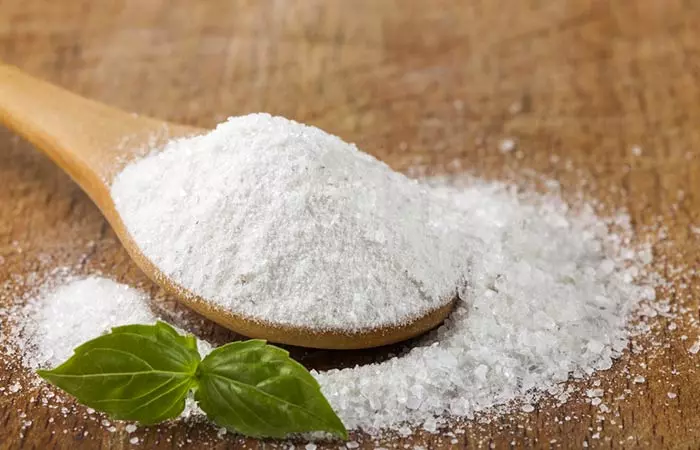
You Will Need
- 1 teaspoon Epsom salt
- 1 cup warm water
What You Have To Do
- Dissolve the salt in warm water.
- Rinse the blister and the surrounding skin with this water.
How Often You Should Do This
Repeat this twice or thrice daily.
Why This Works
Epsom salt is essentially magnesium sulfate along with a couple of minerals. Magnesium has anti-inflammatory properties. It may help reduce swelling and discomfort around the blood blister (3). It may also help detoxify the skin and alleviate the pain. Some research also suggests that an Epsom salt bath may improve the immunological functioning of the skin (4). This may prevent the further development of blood blisters.
2. Lavender Oil For Blood Blister
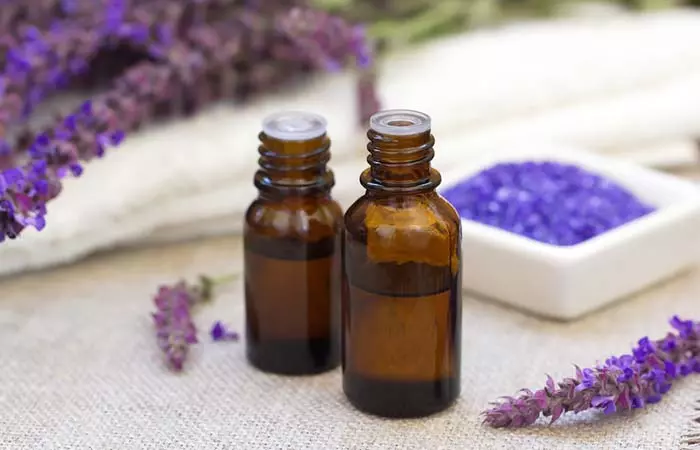
You Will Need
- 1-2 drop lavender essential oil
- 1-2 drops almond oil
- Gauze
What You Have To Do
- Mix the two oils and pour the blend onto the gauze.
- Place this gauze on the blood blister and secure it.
- Remove it after an hour or so.
How Often You Should Do This
Do this twice a day. Use a fresh piece of gauze every time.
Why This Works
Lavender essential oil helps eliminate the pain associated with blisters (5). It is also known to speed up the healing process of such skin ailments. It does so by stimulating collagen production, encouraging skin cell growth, and aiding in the formation of new tissue. This helps shrink wounds by tightening the surrounding skin and activating TGF-β, a key protein in the healing process (6).
Caution
Essential oils like lavender oil are highly potent and may cause skin irritation and burns. So, always dilute them before use. Also, perform a patch test to prevent allergic reactions.
3. Salt Water For Blood Blister
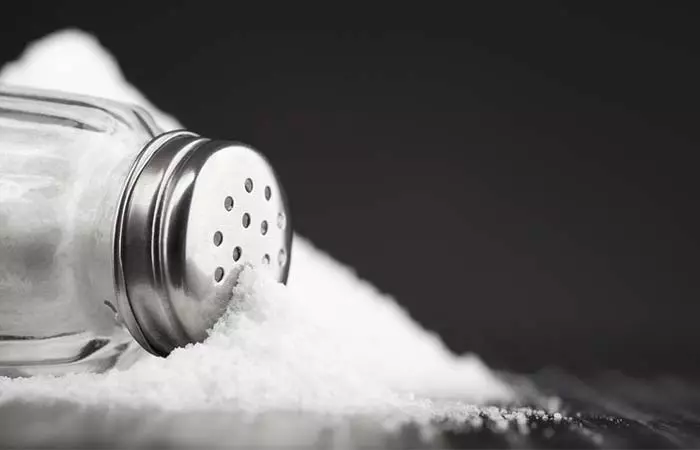
You Will Need
- 1/2 cup salt
- A tub of warm water
What You Have To Do
- Add the salt to the tub of water and mix well.
- Soak the affected foot in the tub for 10-15 minutes.
How Often You Should Do This
Do this once or twice a day.
Why This Works
Salt water has natural antimicrobial properties that may help keep the blister clean and reduce the risk of infection (7). Soaking the area with the blood blister in warm salt water will help the blister burst easily and abate the pain associated with it. Once it bursts, it heals on its own.
4. Apple Cider Vinegar For Blood Blister
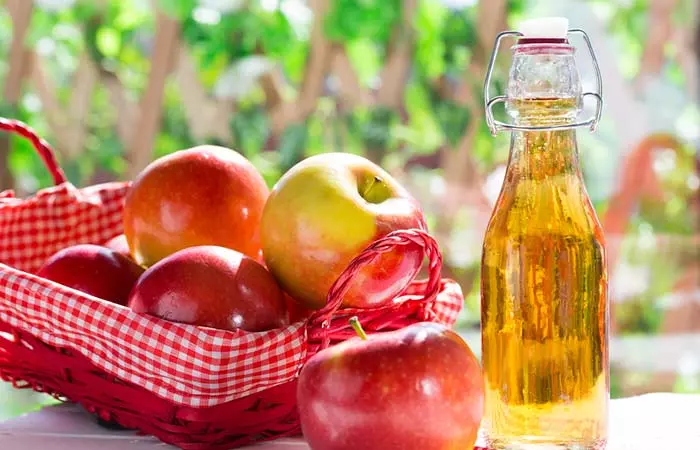
You Will Need
- 1 teaspoon apple cider vinegar
- 1 teaspoon water
- A cotton ball or cotton pad
What You Have To Do
- Dilute the ACV with water and soak the cotton pad in this.
- Place it on the blister and leave it on for 10-15 minutes.
How Often You Should Do This
Repeat this twice a day.
Why This Works
With its mild acidic action and detoxifying compounds, ACV will speed up the healing process of the blood blister. Its antimicrobial action will destroy bacteria and prevent infections (8).
Caution
Do not apply ACV on an open blister. ACV is highly acidic, so, dilute it before use.
5. Warm/Cold Compress For Blood Blister
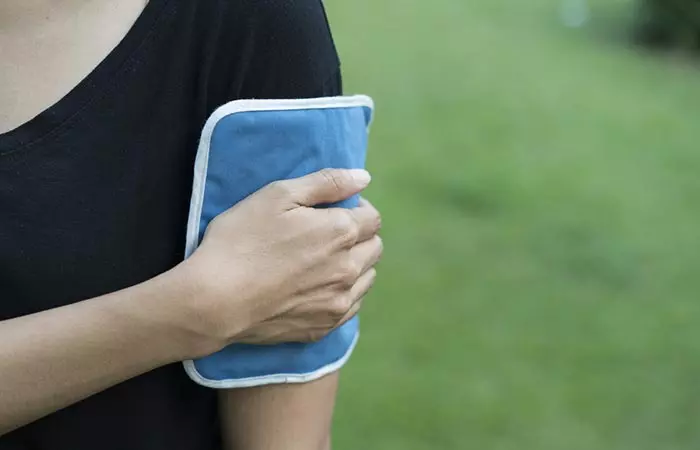
You Will Need
An ice pack OR a hot compress
What You Have To Do
Use whichever compress is available at home and place it on the blister for 15 minutes. Keep a clean towel in between if required.
How Often You Should Do This
Place the compress on the blister twice a day to speed up the healing process.
Why This Works
Soon after the trauma has occurred and the blood blister begins to form, placing a hot or cold pack will prevent inflammation and formation of a blister filled with blood and fluid. The temperature difference also helps ease the pain (9).
Note
If you do not have an ice pack and are going to use ice cubes, remember to place the ice on a cloth first. Otherwise, it could lead to a minor version of a frostbite.
6. Witch Hazel For Blood Blisters
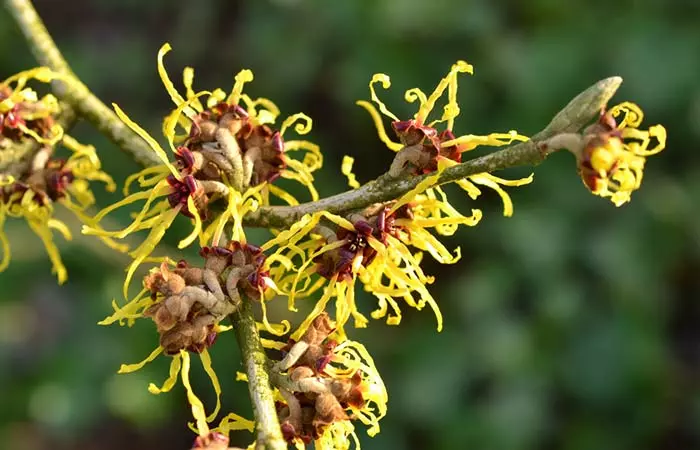
You Will Need
- Witch hazel solution
- Cotton
What You Have To Do
- Using a cotton ball, dab some witch hazel solution onto the blister.
- Let it dry naturally.
How Often You Should Do This
Apply this 3-4 times a day until the blister heals.
Why This Works
Witch hazel is a traditional remedy that is used as a topical astringent to cure skin problems, such as cuts, abrasions, infections, and even blisters. Its astringent properties will dry up the blister and let it heal quickly. It also possesses anti-inflammatory properties that can reduce the swelling (10).
 Fun Fact
Fun Fact7. Garlic Paste Or Oil
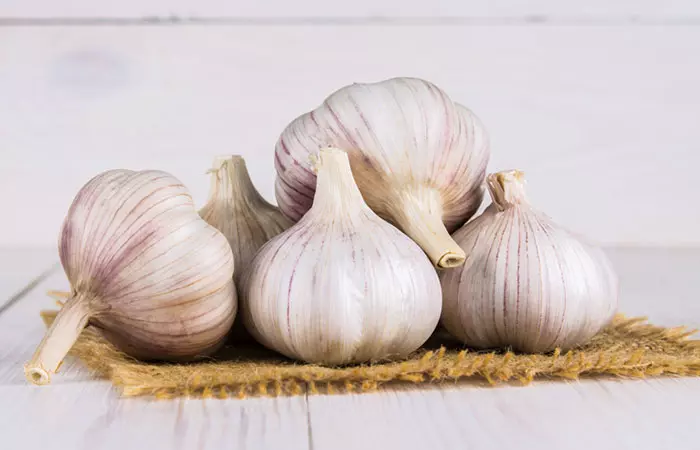
You Will Need
- 5-6 garlic cloves
- 1 cup olive oil
What You Have To Do
- Crush the garlic and heat it with the oil on low heat for 10-12 minutes.
- Let the oil cool down. Apply a drop or two on the blister. Massage very gently.
- Leave it on for 30 minutes.
- Store the remaining oil in an airtight jar.
Garlic can also be crushed and ground into a paste and applied on the blood blister. This paste can be left on for 10-12 minutes.
How Often You Should Do This
Apply this freshly prepared garlic oil 3-4 times a day.
Why This Works
Garlic contains allicin, a therapeutic compound that can fix the blister and also prevent infection. It has antioxidant and antimicrobial properties (11).
8. Tea Bag On Blood Blister
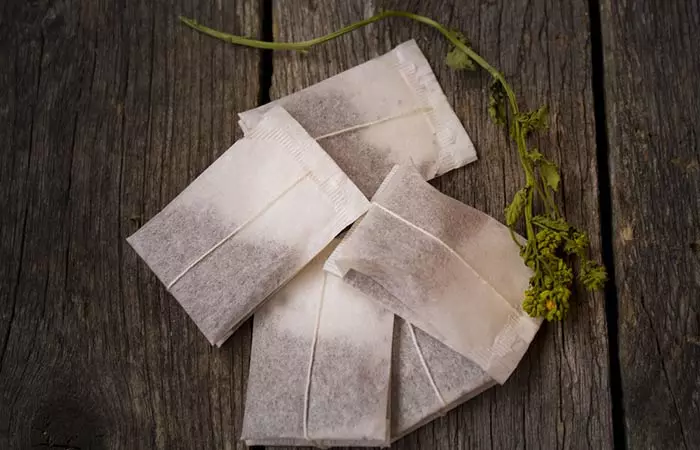
You Will Need
A tea bag
What You Have To Do
- Wet the tea bag and keep it in the refrigerator.
- Place this on the affected area and leave it on for a couple of minutes.
How Often You Should Do This
Repeat this a few times a day until the blister heals. The same tea bag can be used for an entire day.
Why This Works
The tannic acid in the tea will prevent infections and assuage the swelling (12).
9. Sandalwood For Blood Blisters
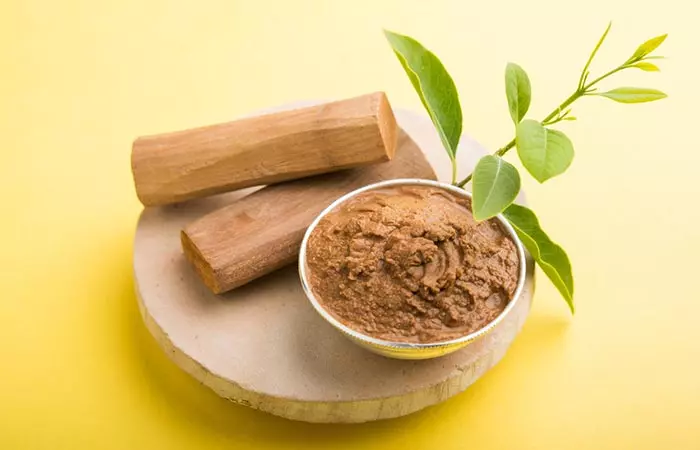
You Will Need
- 1 teaspoon sandalwood powder
- Water
What You Have To Do
- Add a couple of drops of water to the sandalwood powder to make a smooth paste.
- Spread this paste evenly on the blister and wait for it to dry. This takes 10-15 minutes usually.
- Wipe off with a cool, damp cloth.
How Often You Should Do This
Apply this paste 2-3 times in a day.
Why This Works
Sandalwood paste will absorb the warmth from the blister. Its anti-inflammatory and analgesici A type of medication used to relieve pain that does not affect the sensory awareness and consciousness of the individual. properties will reduce the swelling and soothe the blister-associated pain. It is also known to speed up the wound-healing process (13).
10. Turmeric For Blood Blisters
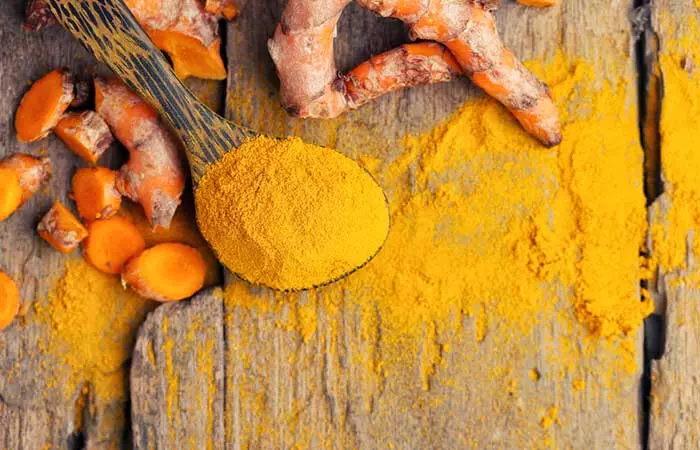
You Will Need
- 1/2 teaspoon turmeric
- 1/2 teaspoon honey
What You Have To Do
- Make a thick paste by mixing the turmeric powder with honey.
- Apply this paste on the blister and keep it on for half an hour.
- Wash it off with cool water.
How Often You Should Do This
Do this 2-3 times in a day.
Why This Works
Turmeric is widely used as a topical antiseptic agent. It also enhances the healing process by activating the required mechanisms in the skin for wound repair (14).
A word of caution before you start giving these remedies a try – do not forcibly burst these blisters. It could lead to serious infections and discomfort. If the blister doesn’t seem to budge with home remedies, medical intervention might be in order. It is also important to note that these home remedies to get rid of blood blisters should not be considered medical advice. While they may help alleviate symptoms, they are not a substitute for professional treatment. If you have a severe or infected blood blister or an underlying medical condition, consult a healthcare professional before using these remedies. Keep reading to learn more about seeking medical help in rare cases.
When To Seek Medical Help
Consult your healthcare professional if you don’t recall getting a blister or find yourself getting one frequently, as this may indicate an underlying problem. It is important to have them checked out and diagnosed as soon as possible. Also, seek medical attention if you notice any signs of infection, such as increased redness, swelling, warmth, or pus around the blister. If the blister does not heal within two weeks or if it becomes increasingly painful, it is also wise to consult a healthcare provider for further evaluation.
As you know, it is always best to prevent than treat. Therefore, here are a few points to help you prevent such blisters.
Preventing Blood Blisters
- Use gloves or cushioned pads when engaging in activities that may cause friction or pressure on your skin, such as sports or manual labor.
- Select shoes that fit well and provide adequate support to prevent rubbing and friction that can lead to blisters.
- Maintain hydration in your skin to reduce friction. Applying lotion regularly can help keep the skin supple.
- Apply anti-friction creams or powders to areas prone to blisters, especially during prolonged physical activities.
- If you are starting a new exercise routine, increase intensity and duration gradually to allow your skin to adapt and avoid excessive friction.
- Regularly check your skin for any signs of irritation or friction, and take action early to prevent blisters from forming.
Infographic: Top 5 Ways To Treat Blood Blisters
You can easily manage blood blisters at home with these DIY remedies. However, some of these remedies can be effective in providing faster relief. Check out the infographic below to learn about the best 5 remedies that will help solve the issue. Scroll down. Illustration: StyleCraze Design Team
Blood blisters are blood-filled lumps on the skin that stem from injury to the dermal layer of the skin. They usually occur near the mouth, hand, feet, and areas near joints or bones. While they are harmless and disappear on their own time, you may get rid of blood blisters more quickly using certain home remedies. Epsom salt, cold or warm compress, apple cider vinegar, witch hazel, lavender oil, salt water, tea bag, and turmeric are some of the things you can use to facilitate the healing of these blisters. These home remedies are mostly recommended for small blisters; it is better to visit a medical professional to drain them out for larger ones.
Frequently Asked Questions
Are blood blisters serious?
Blood blisters are usually not serious and can often heal on their own without treatment. However, if you notice signs of infection or if the blister doesn’t heal after a few days, it is best to consult a healthcare professional.
Tips For Blood Blisters?
Keep the affected area slightly elevated throughout the day to ensure that the blood blister doesn’t grow too big and cause a bigger bursting of the skin, thus making a larger area susceptible to infection.
Remember that blood blisters are easily susceptible to infections. So, ensure that your hands are always clean when dealing with them. Also, ensure that if the bandage covering the blood blister has become damp or dirty, it is replaced immediately.
If the blood blister is intact, quell the urge to pop it. Also, do not cover it. However, if it is in a place that will touch other surfaces constantly, such as the feet or the palms, tie a loose bandage around the area.
If you are unfortunate enough to have a blood blister in an area on your body that folds frequently, such as the inside of your elbow or the back of your knee, the best thing to do is to attach a splint to avoid bending and unintentional popping of the blister.
If the blood blister breaks even after taking precautions, gently squeeze out all the liquid present inside with clean hands.
For preventing infections at the site of a broken blood blister, wash the area with plain water and an antibacterial soap. Apply an antiseptic ointment and cover it with a sterile bandage.
Do not apply alcohol or iodine directly on a broken blood blister.
Do not pick away any skin from the site of the broken blister. Simply smooth it over and apply the antiseptic ointment on it.
How Long Does It Take For A Blood Blister To Go Away?
On an average, blood blisters go away by themselves in 3-7 days.
Now that you know how to get rid of a blood blister, what are you waiting for? Blood blisters can look unsightly and also be painful. They do heal on their own, but this process can be accelerated by using the remedies given above. These remedies not only mitigate the pain but also diminish the chance of an infection and ensure minimal to no scarring.
What does a cancerous blood blister look like?
A cancerous blood blister looks like a firm, raised, discolored growth on the skin. It is important to address such a skin condition immediately to prevent future complications.
Is it a blood blister or melanomai An extremely dangerous form of skin cancer caused due to the growth of cancer cells in melanocytes (pigment-producing cells) in the body. ?
To resolve the doubt about these two skin conditions, the bump should be examined by a doctor in order to diagnose whether it is a blood blister or melanoma.
Can blood blisters look black?
Yes. Blood blisters start as light red and become darker or black over time.
Do give them a try and let us know your feedback.
Illustration: Effective Home Remedies To Get Rid Of Blood Blisters
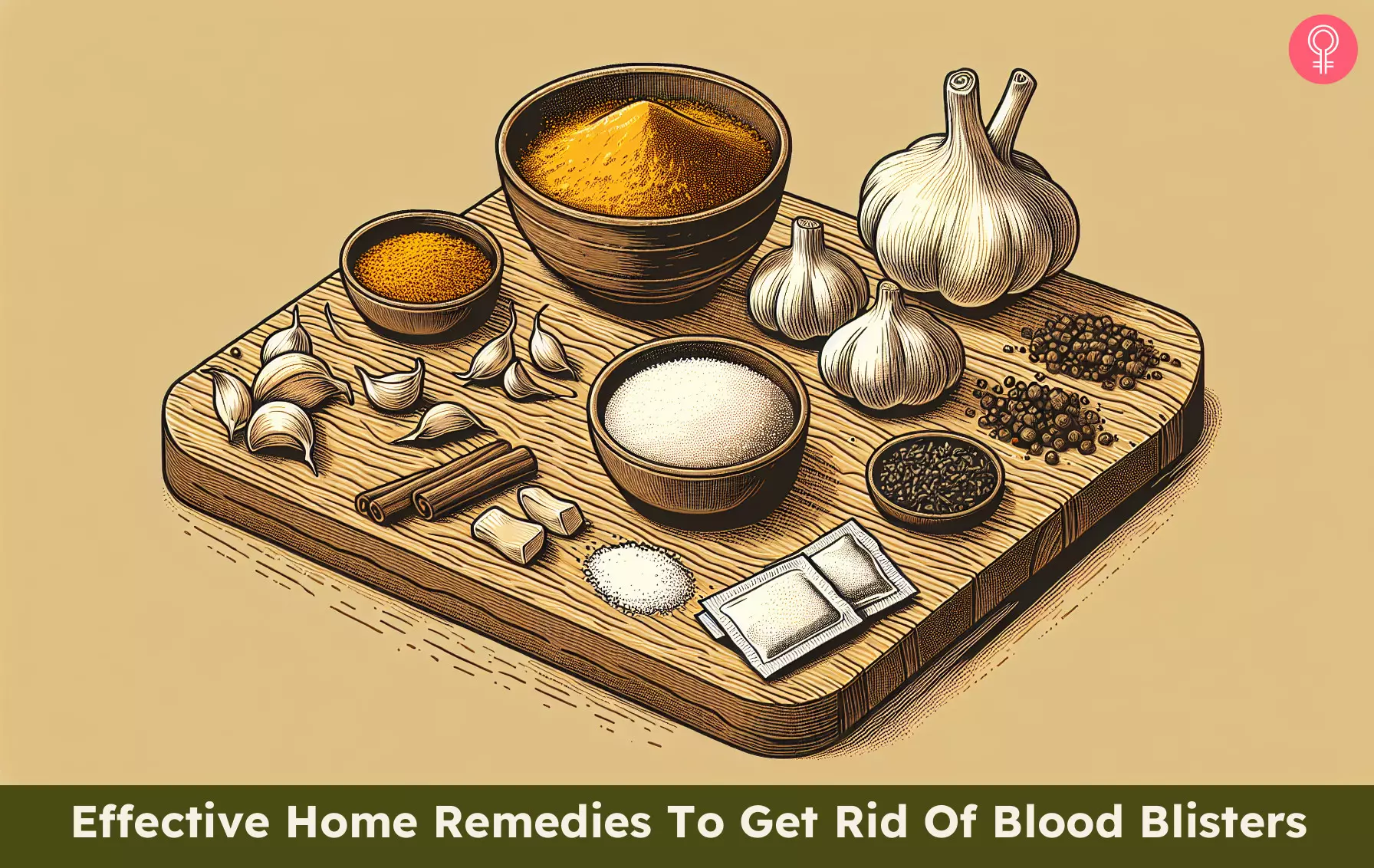
Image: Dall·E/StyleCraze Design Team
Find out how to get rid of blisters quick and easy. Watch this video for these 7 simple tips to deal with the pain and discomfort using home remedies.
References
Articles on StyleCraze are backed by verified information from peer-reviewed and academic research papers, reputed organizations, research institutions, and medical associations to ensure accuracy and relevance. Read our editorial policy to learn more.
- Oral Hemorrhagic Blister: An Enigma
https://pmc.ncbi.nlm.nih.gov/articles/PMC3778802/ - Blisters
https://www.nhs.uk/conditions/blisters/ - Effect of Magnesium Supplementation on Inflammatory Parameters: A Meta-Analysis of Randomized Controlled Trials
https://pmc.ncbi.nlm.nih.gov/articles/PMC8838086/ - Bathing Practices in Dermatology: Uses and Implications for Patient Management
https://pmc.ncbi.nlm.nih.gov/articles/PMC10506818/ - Biological activities of lavender essential oil
https://pubmed.ncbi.nlm.nih.gov/12112282/ - Wound healing potential of lavender oil by acceleration of granulation and wound contraction through induction of TGF-β in a rat model
https://pmc.ncbi.nlm.nih.gov/articles/PMC4880962/ - Antimicrobial properties of salt (NaCl) used for the preservation of natural casings
https://pubmed.ncbi.nlm.nih.gov/16943065/ - Antifungal and Antibacterial Activities of Apple Vinegar of Different Cultivars
https://pmc.ncbi.nlm.nih.gov/articles/PMC8369171/ - Blisters
https://www.nhsinform.scot/illnesses-and-conditions/injuries/skin-injuries/blisters/ - Antioxidant and potential anti-inflammatory activity of extracts and formulations of white tea, rose, and witch hazel on primary human dermal fibroblast cells
https://pmc.ncbi.nlm.nih.gov/articles/PMC3214789/ - Garlic: a review of potential therapeutic effects
https://pmc.ncbi.nlm.nih.gov/articles/PMC4103721/ - Antioxidant and antibacterial properties of green, black, and herbal teas of Camellia sinensis
https://pmc.ncbi.nlm.nih.gov/articles/PMC3249787/ - Anti-inflammatory, analgesic, and antioxidant activities of methanolic wood extract of Pterocarpus santalinus L.
https://pmc.ncbi.nlm.nih.gov/articles/PMC3157138/ - Beneficial role of curcumin in skin diseases
https://pubmed.ncbi.nlm.nih.gov/17569219/
Read full bio of Dr. Sameeksha Chand
Read full bio of Kushneet Kukreja
Read full bio of Ramona Sinha
Read full bio of Swathi E





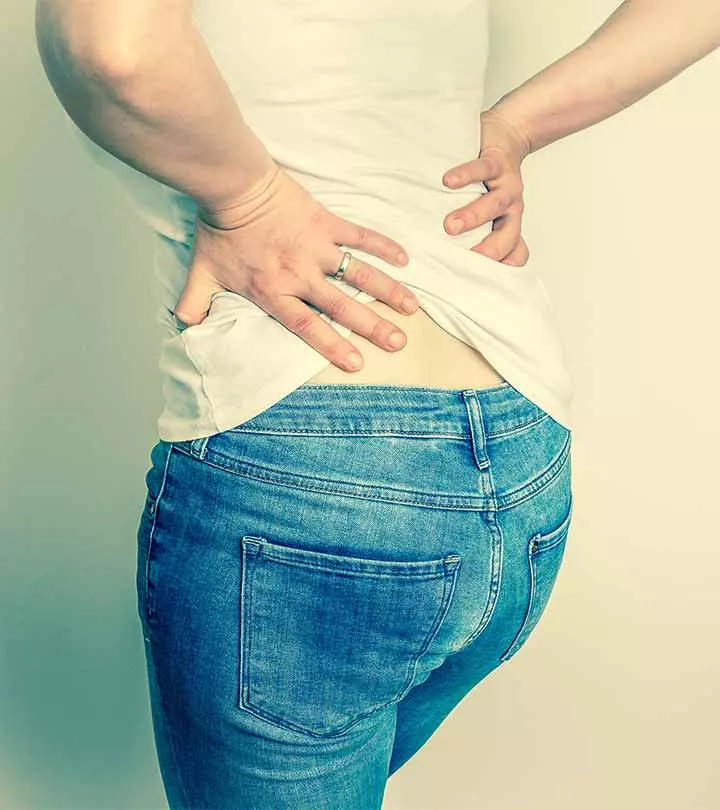
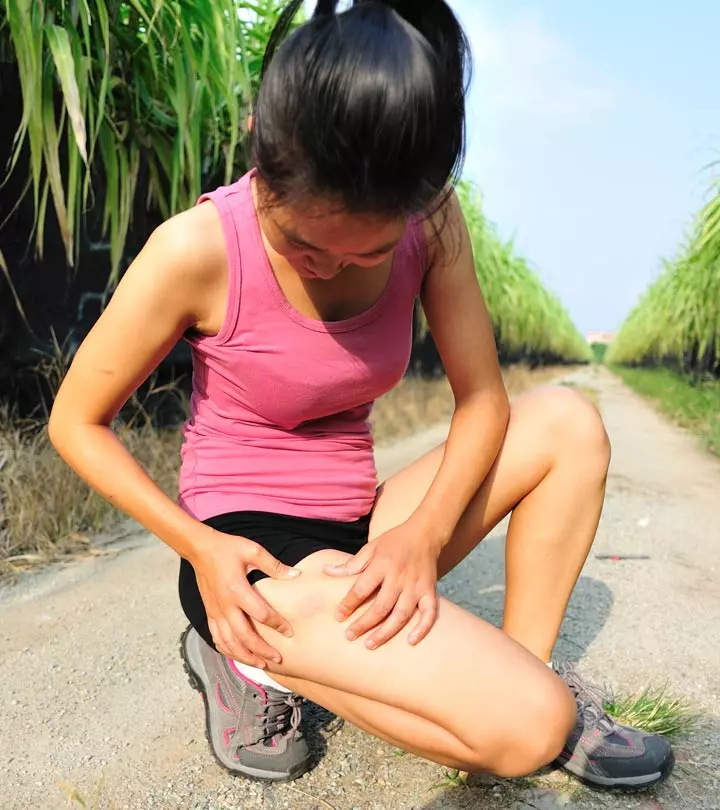
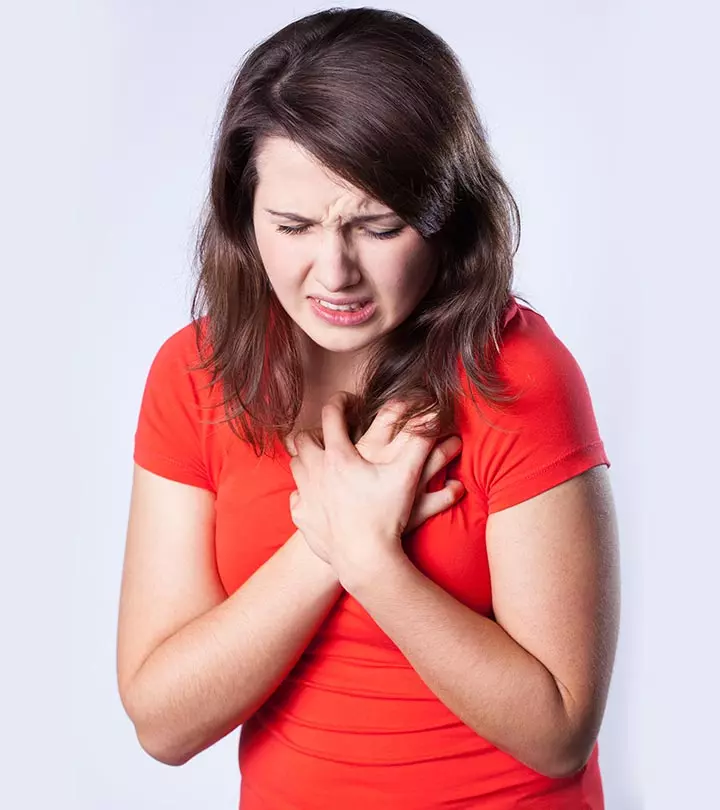
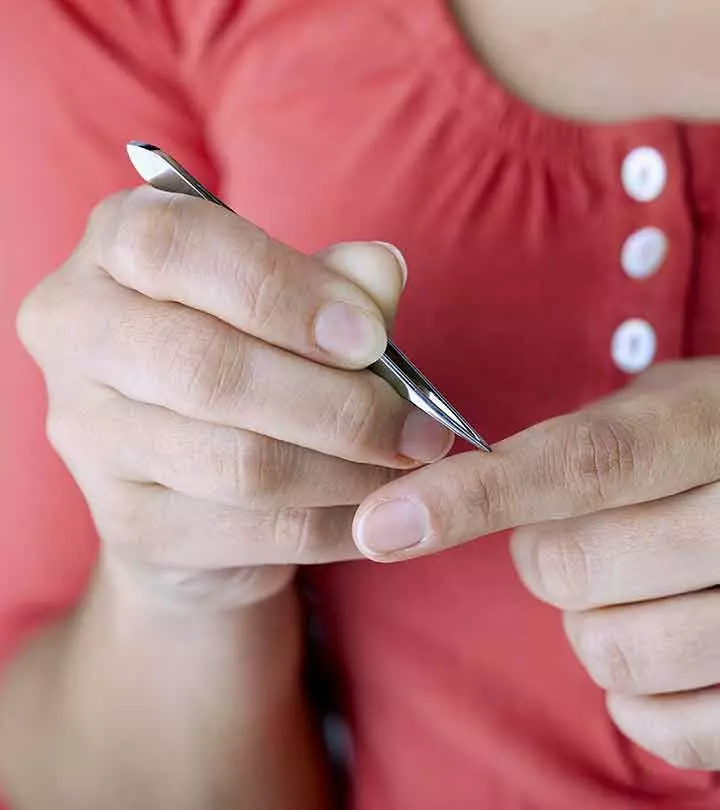
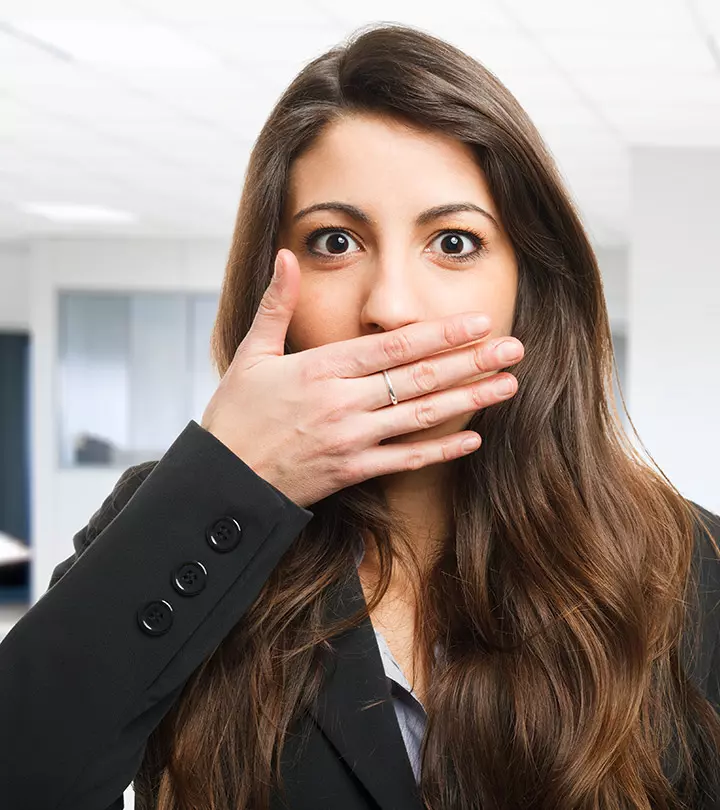
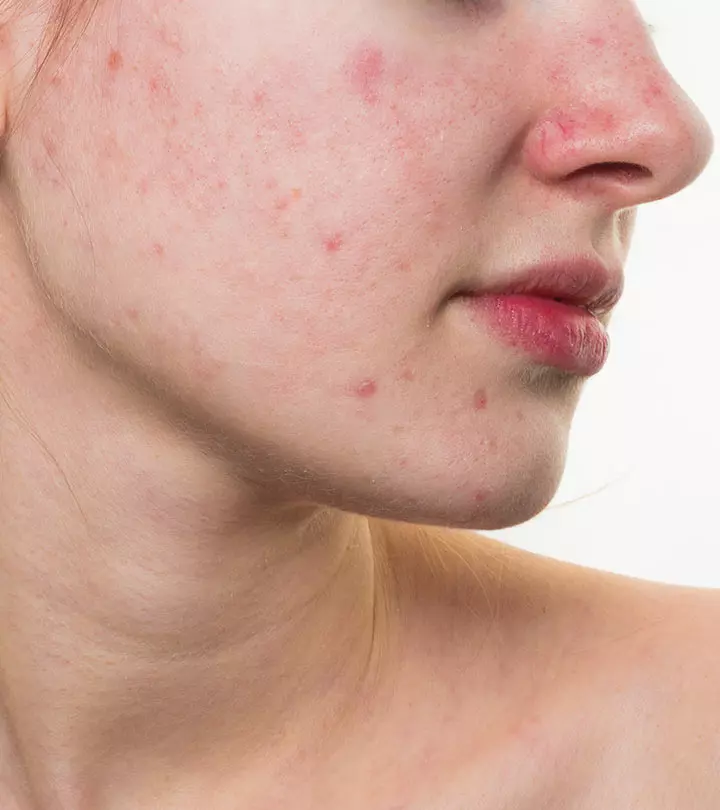

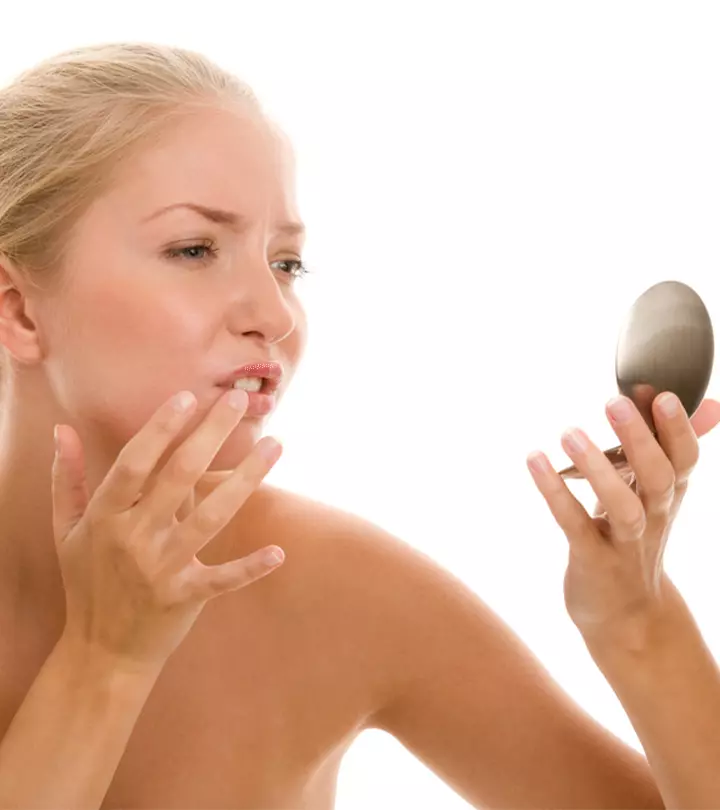
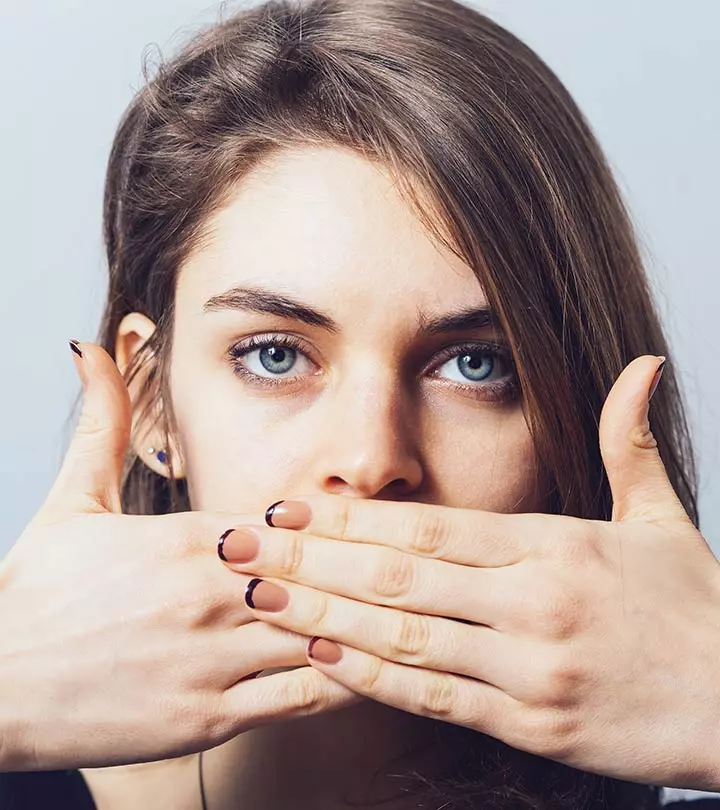
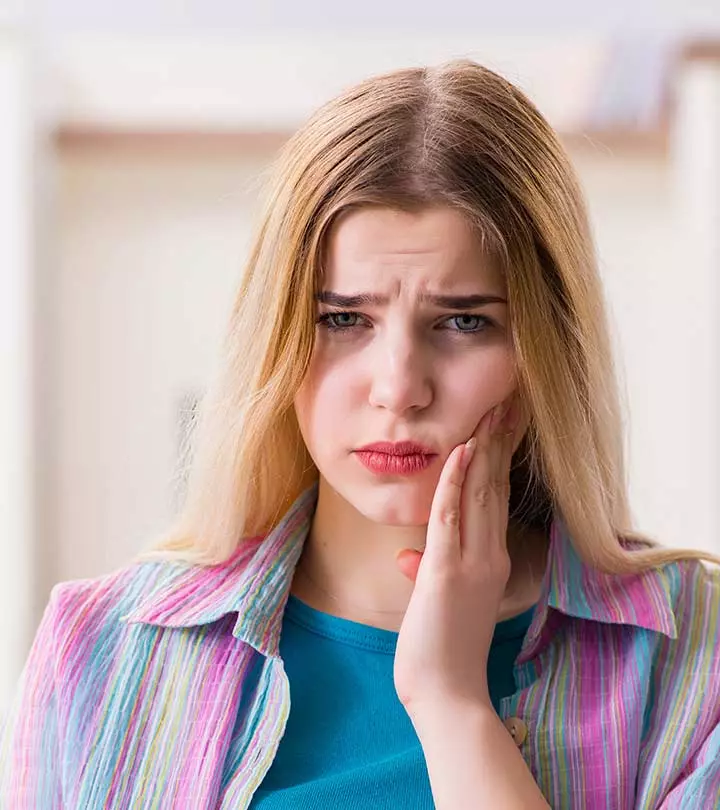
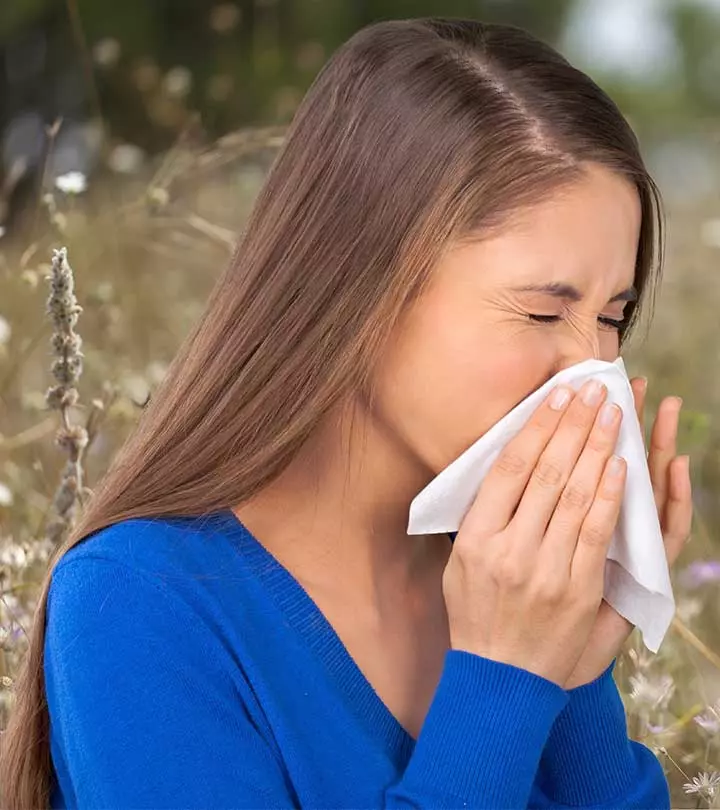
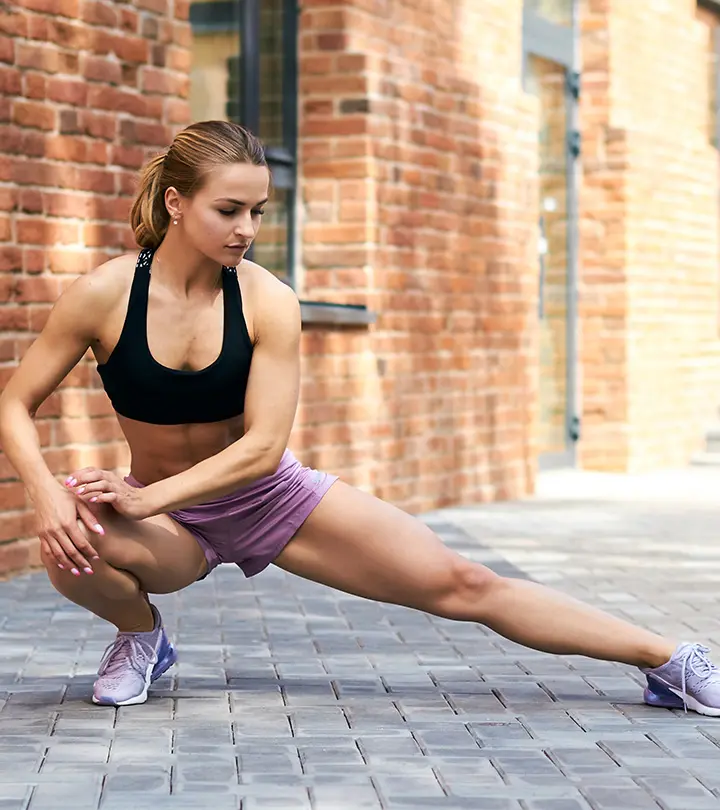
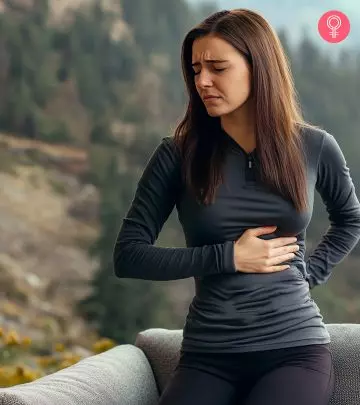
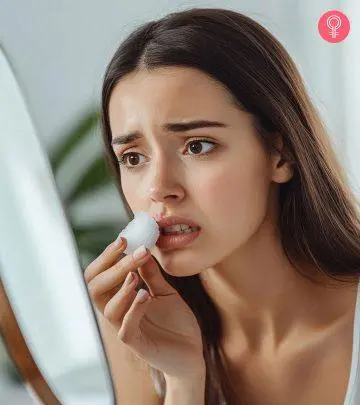

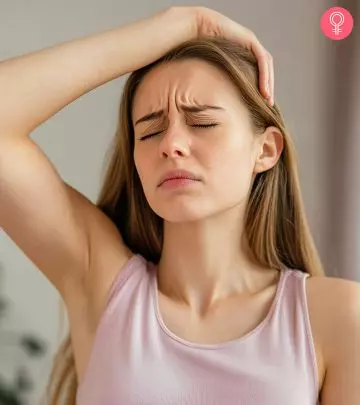
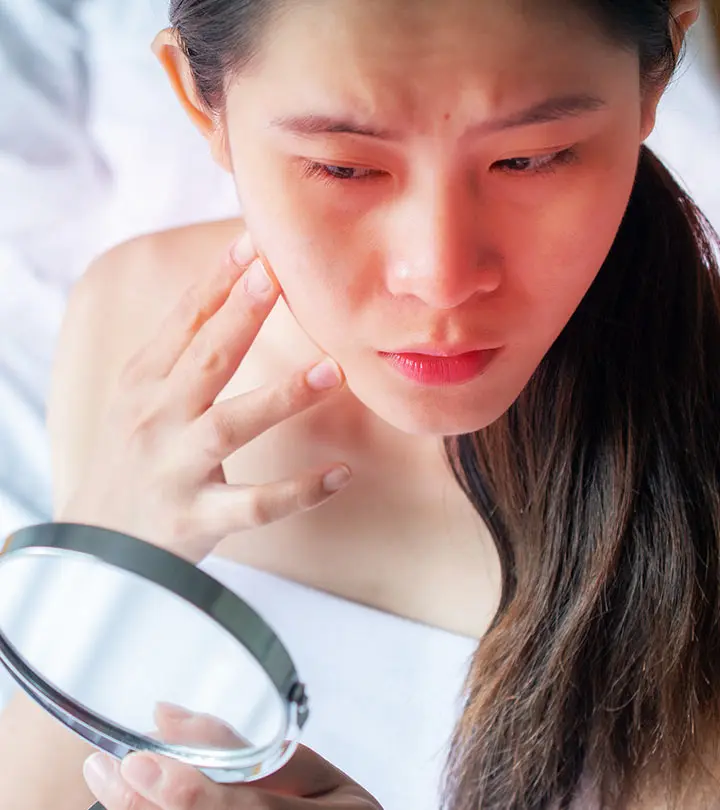
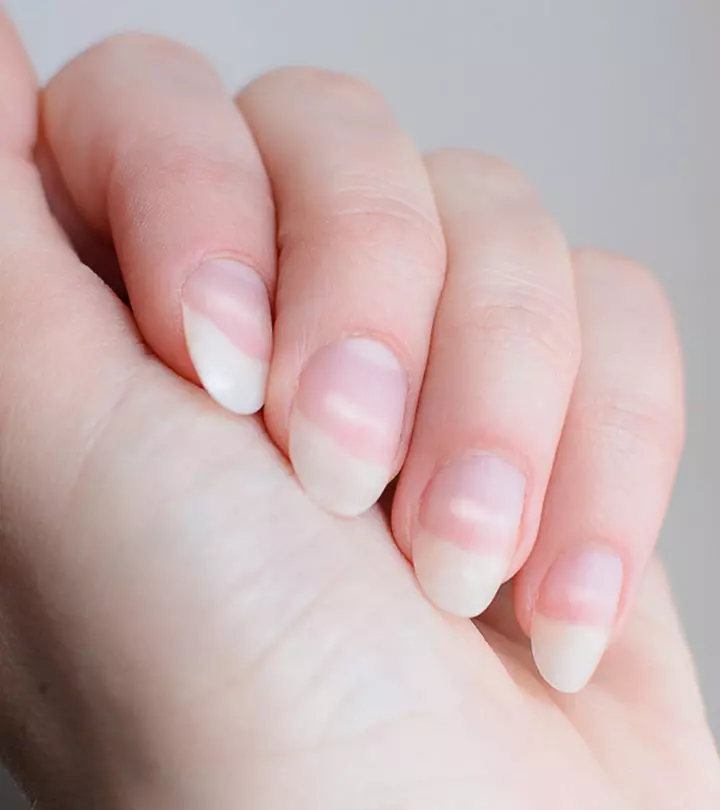
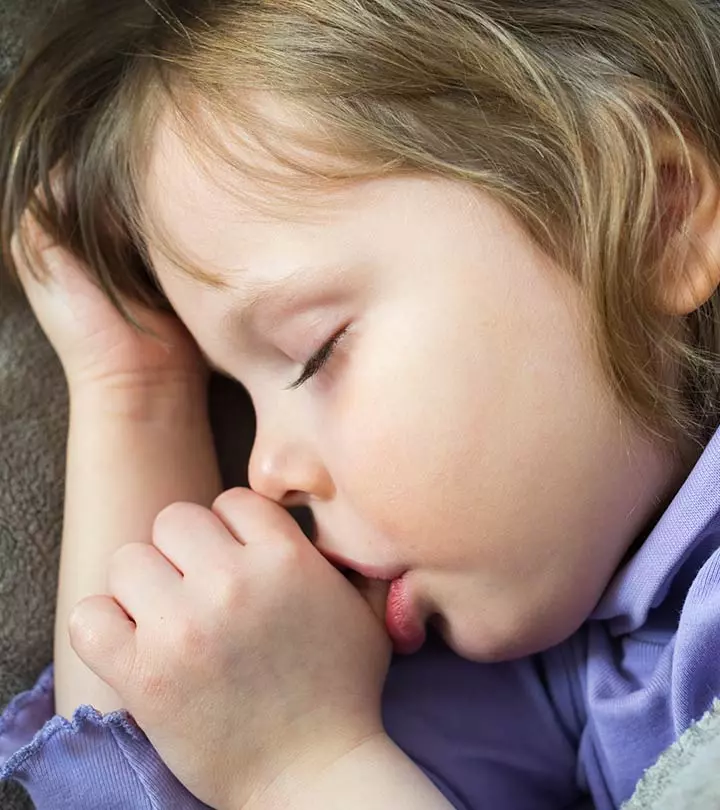
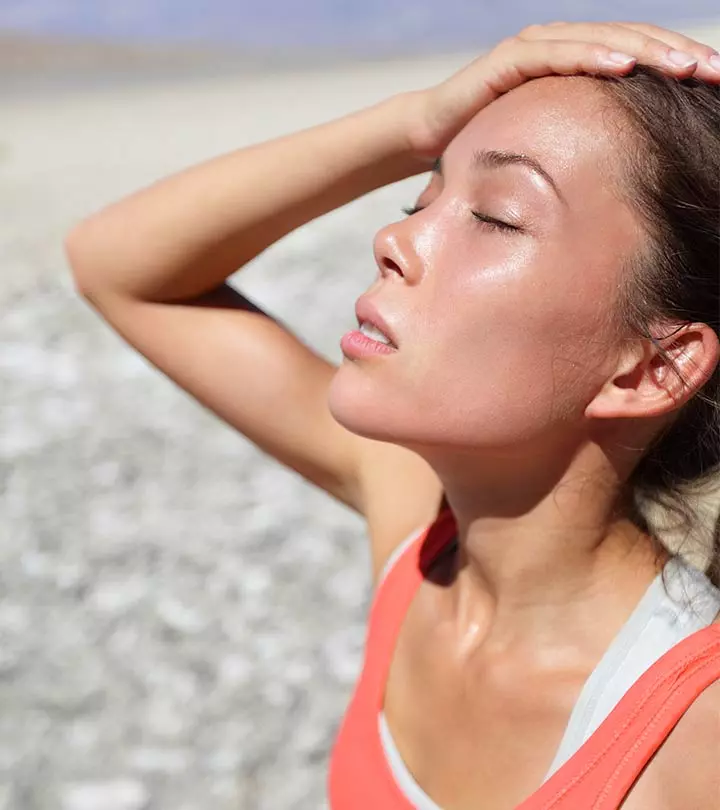
Community Experiences
Join the conversation and become a part of our empowering community! Share your stories, experiences, and insights to connect with other beauty, lifestyle, and health enthusiasts.